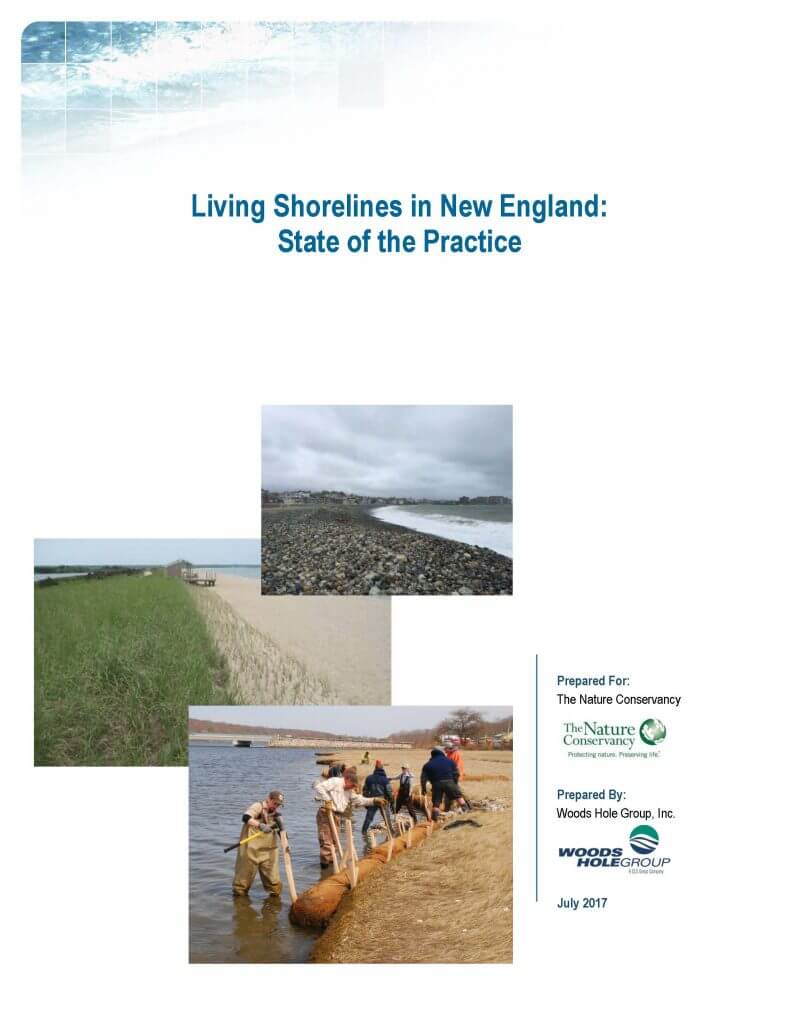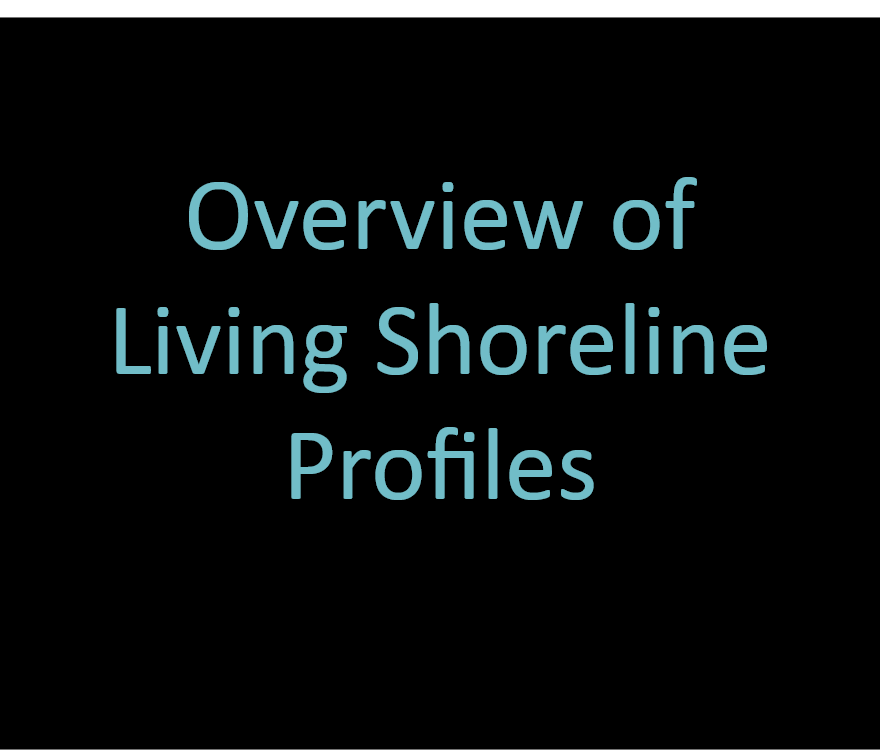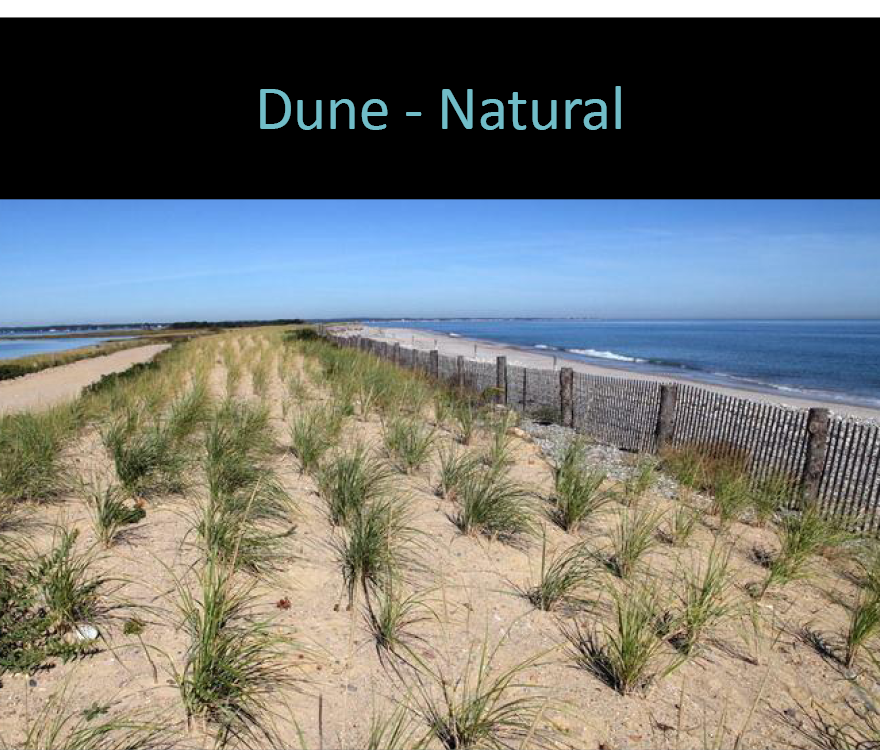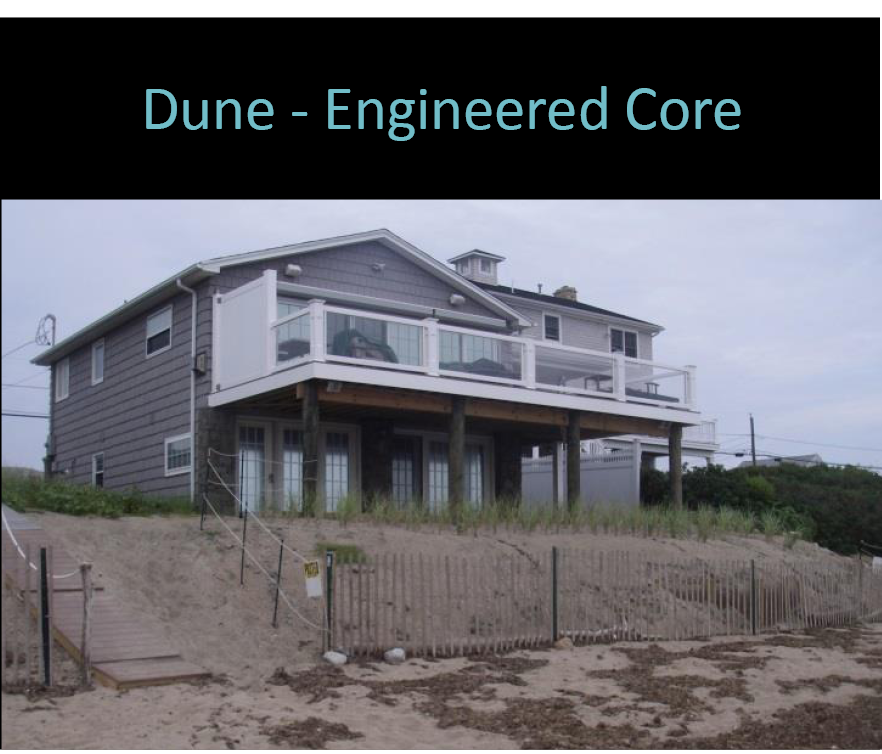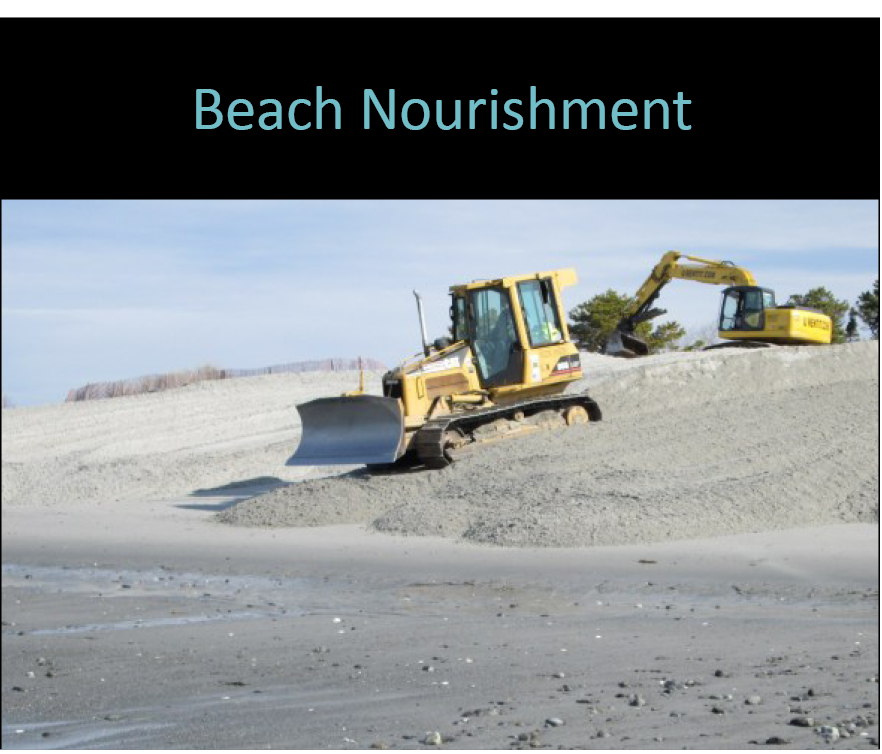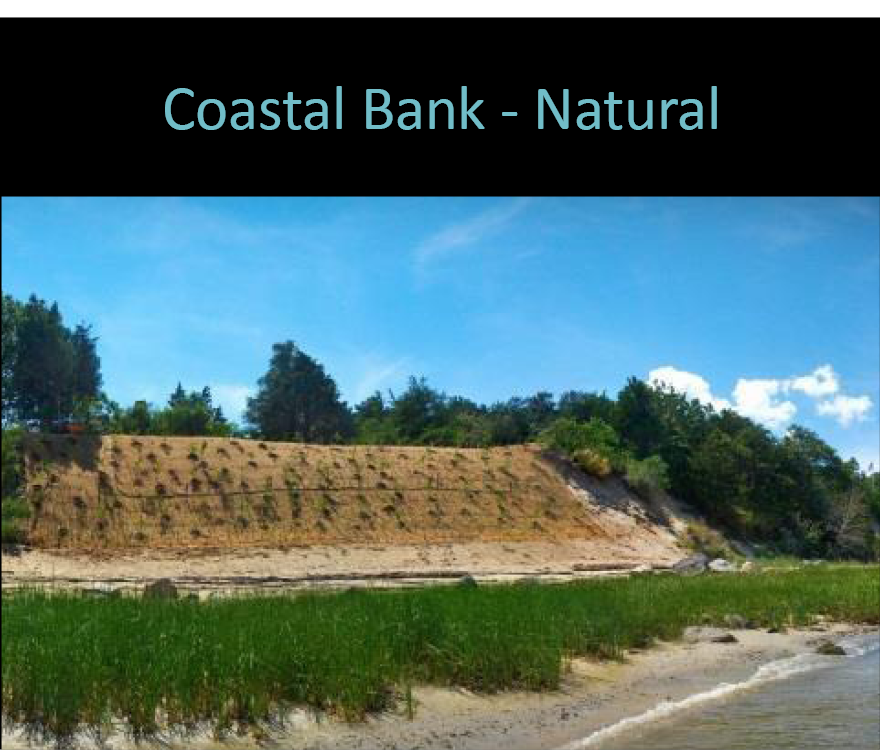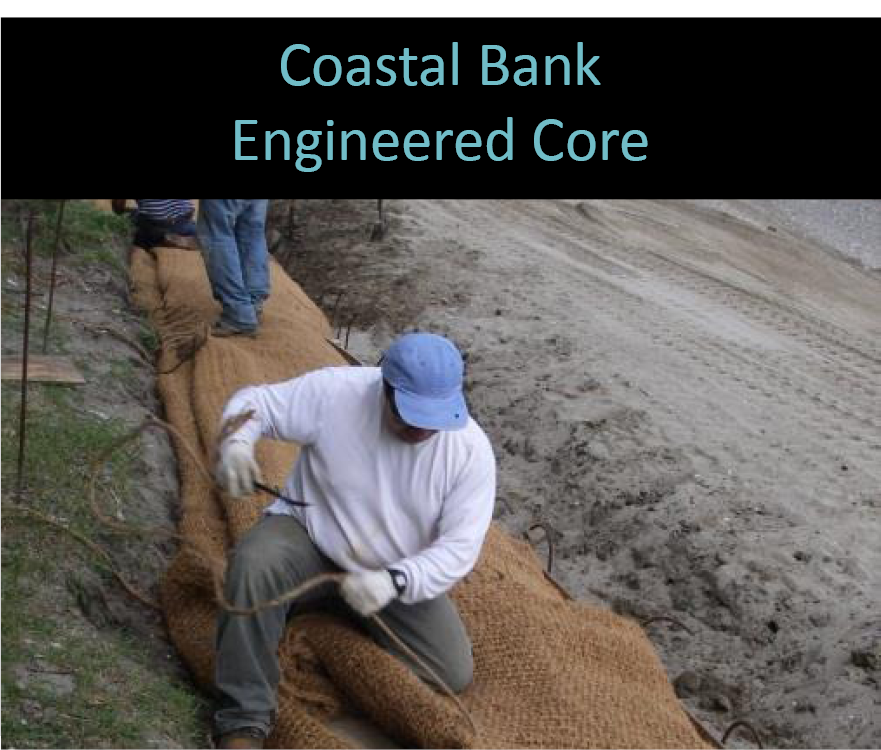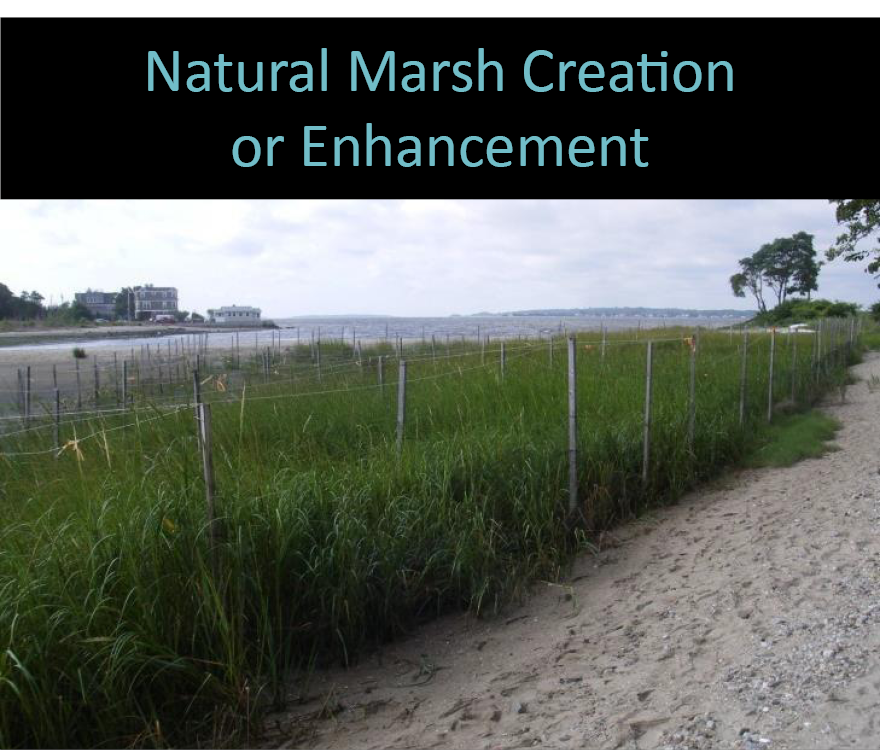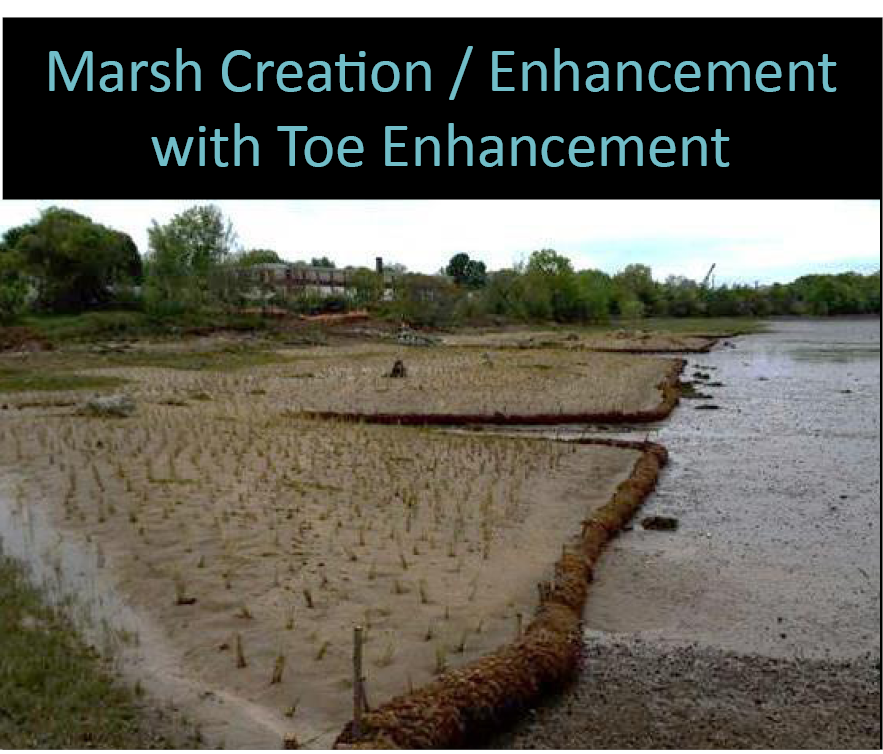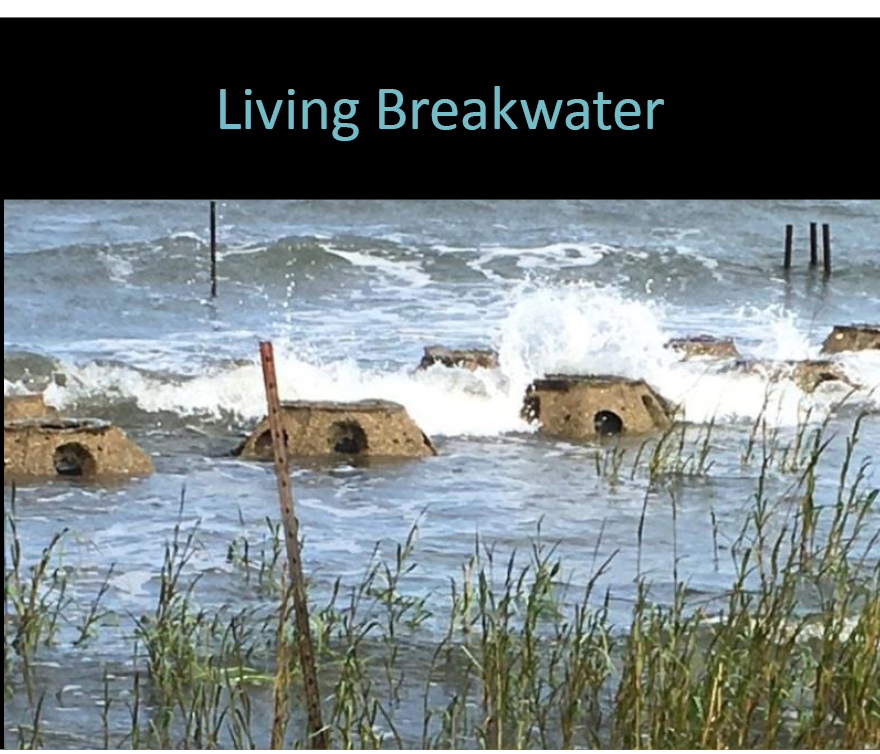Advancing Green Infrastructure and Living Shoreline Approaches
Northeast Regional Ocean Council (NROC), Northeastern Regional Association of Coastal Ocean Observing Systems (NERACOOS), The Nature Conservancy, and state coastal management programs throughout the Northeast have been working together to increase understanding and application of living shorelines or nature-based approaches to coastal infrastructure. This project was made possible through a grant from the National Oceanic and Atmospheric Administration (NOAA) for Advancement of Green Infrastructure and Living Shoreline Approaches in the Northeast (Grant #NA16NOS4730013). Project partners published a Living Shorelines State of the Practice Report, developed profiles for living shorelines, evaluated regulatory issues associated with living shoreline practices, hosted workshops, and worked with local communities and stakeholders to advance living shoreline projects. NROC is pleased to highlight select products and outreach materials from this multi-year project conducted from May 2016 through April 2019.
Living Shorelines State of the Practice Report
This comprehensive report highlights practical considerations and guidance for property managers, regulators, coastal municipal leaders, scientists and practitioners, who are interested in advancing nature-based restorative approaches (living shorelines) policies and practices.
Living Shoreline Profiles
Living shoreline profiles (also included in the State of the Practice report) provide an overview of techniques, conceptual designs, case studies, siting characteristics, and regulatory topics for several types of living shoreline projects that practitioners and regulators can use as a quick field reference or educational tool. Download the overview and complete set of living shoreline profiles or access profiles by living shoreline type below.
Resources and Presentations from Living Shoreline Workshops
NROC and its partners hosted workshops, training sessions, and site visits to engage municipal planners, builders, residents and community leaders in working together to advance nature-based solutions for resilient shorelines throughout the Northeast.
Living Shorelines for Stable Shores: A Learning Workshop for Municipal Staff and Volunteers
Greenland, New Hampshire – 18 April 2018
- Workshop Agenda
- Smart Shoreline Stabilization for Coastal New Hampshire – Kirsten Howard, New Hampshire Coastal Program
- Living Shorelines for New Hampshire – David Burdick, Tom Ballestero, and Gregg Moore, University of New Hampshire
- Report: Advancing Coastal Resilience: An Institutional Analysis of Living Shorelines in New Hampshire – Catherine Ashcraft and Trevor Mattera, University of New Hampshire
Resilient Shores: Green Solutions Workshop
Falmouth, Massachusetts – 12 April 2018
- Workshop Agenda
- Living Shorelines State of the Practice (Part 1) – Steve Kirk, The Nature Conservancy
- Living Shorelines: State of the Practice (Part 2) – Julia Knisel, Massachusetts Office of Coastal Zone Management
- Monitoring Living Shorelines: Development of a Monitoring Protocol – Eric Roberts, The Nature Conservancy
- Progressive Bioengineering: Latest Developments in Non-Structural Alternatives for Shoreline Stabilization – Wilkinson Ecological Design (Part 1)
- Progressive Bioengineering: Latest Developments in Non-Structural Alternatives for Shoreline Stabilization – Wilkinson Ecological Design (Part 2)
- Handout: Living Shorelines Resources Sheet 2018
Going Green – Furthering Living Shorelines in Maine
Portland, Maine – 6 April 2018
- Workshop Agenda
- Workshop Introduction – Chris Feurt, Wells National Estuarine Research Reserve
- Increasing Resilience and Reducing Risk through Successful Application of Nature-based Coastal Infrastructure Practices in New England: The Maine Approach – Pete Slovinsky, Maine Geological Survey
- Introduction to Mackworth Island Site Visit – Pete Slovinsky, Maine Geological Survey
- Monitoring Living Shoreline Projects in Maine – Curtis Bohlen, Casco Bay Estuary Program
- Challenges, Opportunities, and Lessons Learned – Baker Design Consultants
- New Hampshire Experiences with Living Shoreline Fringing Salt Marshes – University of New Hampshire Coastal Habitat Restoration Team – Joel Ballestero, Tom Ballestero, David Burdick, Gregg, Moore, Kirsten Howard, Cat Ashcraft
- Using Instability Rating and Decision Support Tree for Living Shoreline and Stabilization Alternatives – Troy Barry, Headwaters Hydro
- Handout: Coastal Living Shoreline Instability Rating Assessment Form
- Living Shorelines – Jonathan Edgerton, Wright Pierce
Shoreline Stabilization Options for Newington’s Fox Point Area
Newington, New Hampshire – 26 March 2018
- Workshop Agenda
- Progressive Bioengineering: Latest Developments in Non-Structural Alternatives for Shoreline Stabilization – Wilkinson Ecological Design
- Coastal Stabilization Design Details – Wilkinson Ecological Design
- Newington-Fox-Point-Workshop Participant List
Connecticut Living Shorelines: Projects into Practice Workshop
University of Connecticut, Groton, Connecticut – 20 November 2017
- Workshop Agenda
- Overview of Workshop and Related Projects and Resources, Rebecca French, Connecticut Institute for Resilience and Climate Adaptation
- Overview of Connecticut Living Shoreline Permit Process – Tonia Selmeski and John Gaucher, Connecticut Dept. of Energy and Environmental Protection
- Hepburn Dune and Marsh, Fenwick, Connecticut – Marilyn Ozols, Borough of Fenwick, Connecticut
- Concept Design for East Shore Park, New Haven, Connecticut – Giovanni Zinn, City of New Haven, Connecticut
- Federal Perspective on Design and Permitting, Cori Rose, US Army Corps of Engineers
- Federal Fisheries Habitat Consideration, Alison Verkade, National Oceanic and Atmospheric Administration
- Project Summary: Stratford Living Shoreline – Restoring Coastal Habitats to Maintain Resilience and Function
Engineering Living Shorelines in Tidal New Hampshire
Portsmouth, New Hampshire – 26 October 2017
- Workshop Agenda
- Living Shorelines in NH: Living Shorelines 101 – Kirsten Howard, New Hampshire Coastal Program, New Hampshire Dept. of Environmental Services, and David Burdick, University of New Hampshire Coastal Restoration
- Living Shorelines in NH: Living Shorelines 201 – Thomas Ballestero, David Burdick, Gregg Moore, and Joel Ballestero, University of New Hampshire Coastal Restoration
- Living Shorelines Wetlands Permitting Update – David Price, New Hampshire Dept. of Environmental Services
- Handout: Engineering Living Shorelines in New Hampshire – 5 Tips for a Successful Project
- Workshop Notes
Building Resilient Coastal Bluffs / Casco Bay Regional Meeting
Portland, Maine – 11 September 2017
- Meeting Agenda
- Developing a GIS-based Decision Support Tool for Living Shoreline Suitability in Casco Bay, Maine – Pete Slovinsky, Maine Geological Survey
- Resource Guide: Maine Coastal Planting Guide – Cumberland County Soil & Water Conservation District
Introducing Green Infrastructure for Coastal Resilience – NOAA Training
University of Connecticut, Groton, Connecticut – 23 May 2017
- Workshop Agenda
- Introducing Green Infrastructure for Coastal Resilience – John Rozum, National Oceanic and Atmospheric Administration Office for Coastal Management
- Community Benefits of Land Restoration – Matt Fulda, Acting Director, Connecticut Metropolitan Council of Governments
- Designing for the Future by going back to Nature – Giovanni Zinn, City Engineer and Dawn Henning, Project Manager, City of New Haven, Connecticut
- Green Infrastructure at the Local Community / Site Scale – Dan Mullins, Eastern Connecticut Conservation District
- Green Infrastructure / LID Implementation in Connecticut: Status & Forecast – David Dickson, University of Connecticut
Introducing Green Infrastructure for Coastal Resilience
Wells, Maine – 17 May 2017
- Workshop Agenda
- Building Resiliency Along Maine’s Bluff Coastline: Developing a Decision Tree and Coastal Stabilization Alternatives Along Maine’s Casco Bay – Troy Barry, Fluvial Geomorphologist, Cumberland County Soil and Water Conservation District, May 2017
- Introducing Green Infrastructure for Coastal Resilience – Living Shorelines and Decision Support Tools – Pete Slovinsky, Maine Geological Survey

